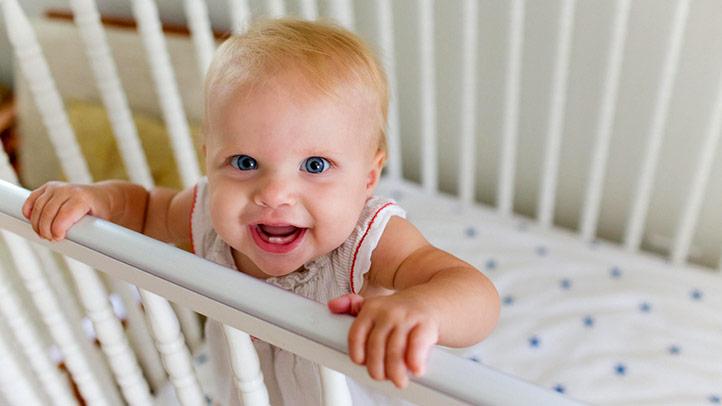In the realm of infant care, few questions evoke as much debate among parents and caregivers as the necessity of waking a sleeping baby to change a diaper. As sleep is a critical component of an infant’s development, the decision to rouse a slumbering child can be fraught with concern for both the baby’s well-being and the caregiver’s peace of mind. This article seeks to explore the best practices surrounding this common dilemma, drawing on recent research in pediatric health, sleep science, and caregiver experiences. By examining the implications of interrupting sleep for diaper changes, the physiological needs of infants, and expert recommendations, we aim to provide a comprehensive overview that empowers parents to make informed decisions tailored to their child’s unique needs. Through this analysis, we uncover not only the practical considerations of diaper changing but also the broader context of nurturing healthy sleep patterns in early childhood.
Considerations for Waking a Sleeping Baby for Diaper Changes
When considering whether to wake a sleeping baby for a diaper change, multiple factors should be assessed. It’s important to weigh the potential discomfort of leaving a soiled diaper against the benefits of uninterrupted sleep. Babies usually communicate their needs through cries, but in deep sleep stages, they may not respond as readily. **Observing the baby’s breathing patterns and facial expressions** can provide insight into their sleep depth. If they seem to be in a light sleep cycle, a gentle awakening may be feasible with minimal disruption.
Moreover, each baby’s sleep and diapering needs are unique; therefore, it’s essential to establish a routine that accommodates both. Here are some considerations:
- **Age of the baby**: Newborns may need more frequent changes than older infants.
- **Type of diaper**: Cloth diapers may require more immediate attention than disposable ones due to increased moisture retention.
- **Health factors**: Diaper rashes or sensitivities may necessitate waking a baby to ensure proper skin care.
Ultimately, the decision should reflect a balance between maintaining the baby’s comfort and fostering healthy sleep habits. Understanding your child’s cues and developing a flexible approach will aid in making the best decision for both diaper changes and sleep quality.
Impact of Sleep Disruption on Infant Development
Sleep plays a crucial role in the overall development of infants, influencing various domains including cognitive, emotional, and physical growth. Disruption in sleep patterns can have significant implications, often resulting in issues such as impaired learning capabilities and difficulties in self-regulation. A lack of adequate sleep can hinder the neural connections that are vital for brain development, potentially leading to long-term cognitive deficits. Moreover, infants who experience fragmented sleep may exhibit behavioral problems, which can further complicate interactions with caregivers and siblings.
Understanding the effects of sleep disruption extends beyond cognitive implications; it also encompasses the physical health of the infant. Consistent sleep interruptions can lead to increased levels of stress hormones, which may impact an infant’s immune system and overall well-being. Some of the specific effects of disrupted sleep may include:
- Delayed milestones: Reduced sleep may lead to slower physical and developmental milestones.
- Increased irritability: Sleep-deprived infants are often more irritable, impacting parent-infant bonding.
- Feeding difficulties: A tired infant may have decreased appetite, complicating feeding schedules.
| Disruption Type | Potential Impact on Development |
|---|---|
| Frequent awakenings | Increased irritability and mood swings |
| Inconsistent sleep schedule | Delayed cognitive and physical development |
| Short sleep duration | Impaired memory consolidation |
Guidelines for Diaper Changes during Sleep: Balancing Hygiene and Rest
When it comes to changing a baby’s diaper during sleep, the key is to prioritize both hygiene and the continuity of rest. **Consider the following factors** to determine if a change is necessary:
- **Diaper Saturation:** If the diaper is excessively wet or soiled, it can lead to diaper rash and discomfort.
- **Baby’s Sleep Cycle:** Recognizing your baby’s sleep patterns can help you decide whether to wake them up for a change.
- **Skin Sensitivity:** Infants with sensitive skin may require more frequent changes, even during the night.
To create a balanced approach, implement a **strategic method** for nighttime diaper changes:
| Change Timing | Considerations |
|---|---|
| Before Bedtime | Conduct a thorough change to start the night fresh. |
| During Night Wakings | If awake for feeding, assess the diaper; if wet, consider changing. |
| Early Morning | Check if the baby is waking up; if they are, perform a change. |
By implementing these strategies, caregivers can maintain a clean environment for the baby while minimizing disruptions to their sleep. Ultimately, the goal is to strike a balance that ensures the baby remains comfortable and well-rested throughout the night.
Recommendations for Parents: When to Intervene and How to Minimize Disruption
Determining when to intervene during your baby’s sleep cycle for a diaper change can be a nuanced decision. It is essential to assess several factors before making your choice. Consider the following indicators that may warrant waking your baby:
- Diaper Saturation: If the diaper is heavily saturated, it may cause discomfort and skin irritation.
- Time Since Last Change: A typical guideline is to change the diaper every 2-4 hours, especially for newborns.
- Signs of Discomfort: If your baby shows signs of restlessness or discomfort, it might be time to intervene.
To minimize disruption during this process, adopt gentle techniques that keep your baby calm. For instance, use ambient lighting to prevent startling them awake, and maintain a quiet atmosphere. Here are a few practical strategies to consider:
| Strategy | Description |
|---|---|
| Swaddle Comfortably | Keep the baby swaddled to provide a sense of security even during changes. |
| Use a Soft Touch | Gently wipe or change the diaper while maintaining a soothing tone. |
| Be Quick | Swiftly change the diaper to reduce the time spent awake. |
Closing Remarks
the decision to wake a sleeping baby for a diaper change is nuanced and context-dependent, with implications for both the infant’s comfort and the caregiver’s peace of mind. This article has examined the physiological factors influencing a baby’s sleep patterns, the potential impacts of waking a baby, and best practices for diaper changes during the night. As caregivers navigate this delicate balance, it is essential to consider the individual needs of the child, the severity of the diaper’s condition, and the overall sleeping environment. Ultimately, the best approach lies in a well-informed, attentive strategy that prioritizes the health and well-being of the infant while also recognizing the challenges faced by caregivers. By understanding the intricacies of infant care, parents can make more informed decisions that enhance the quality of sleep for both themselves and their children, fostering a nurturing environment that supports healthy development.


